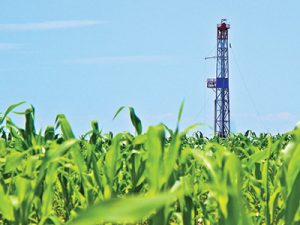Brussels/Washington, 3 May 2017 – Fracked gas from Pennsylvania has caused a public health scare in Scotland — more proof that the fight against dangerous drilling must be global.
At around noon local time on May 2, reports emerged of a major pipeline leak inside the Kinneil Gas plant in Grangemouth. The facility is owned by a company called Ineos, which has pioneered the use of so-called “dragon ships” to carry gas liquids like ethane and butane from Pennsylvania across the Atlantic Ocean to be used in plastics manufacturing.
Ineos is owned by anti-union billionaire Jim Ratcliffe, who calls these massive ships a “virtual pipeline.” His profiteering poses a threat to public safety in Pennsylvania by driving more fracking across a state already devastated by drilling. And it poses serious threats in Scotland too, as this incident makes clear.
While it is too early to determine the magnitude of this gas leak, powerful players in the United States — from the White House to the Energy Department to the office of Pennsylvania Governor Tom Wolf–are pushing policies that will result in more drilling to serve the plastics industry. If they get their way, there will be more such disasters to come.
Wenonah Hauter, Executive Director of Food & Water Watch and Food & Water Europe: “The leak at Grangemouth is a serious concern because it reminds us of the risks and recurrent incidents associated with our continuing corporate-directed reliance on fossil fuels. INEOS has pioneered transatlantic gas liquids shipments from Pennsylvania, which means more fracking and pollution in the United States and more plastics manufacturing pollution in Scotland. And all of that drilling brings us closer to climate chaos, which is why the fight against fracking must be global.”
_______________________________________________________________________________________________
Contact: Andy Gheorghiu, Food & Water Europe, Fracking Policy Advisor, Food & Water Europe, +49 (0) 5631 50 69 507 (land), +49 (0) 160 20 30 974



